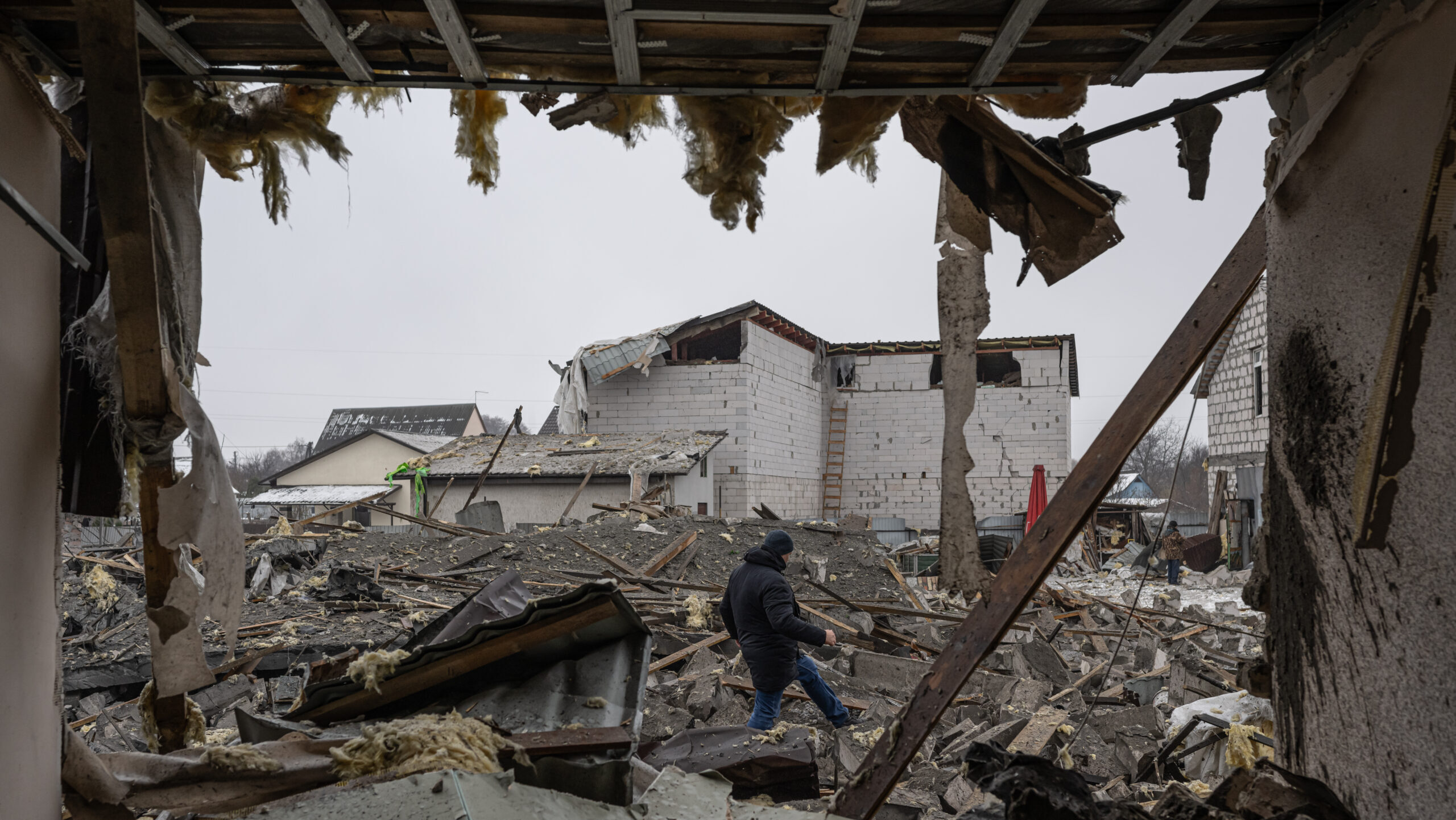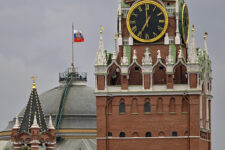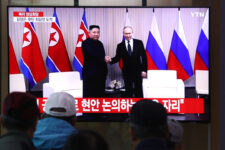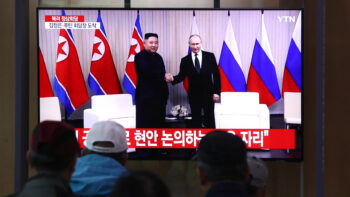
A view of a destroyed residential area following the Russian rocket attack on Ukraine’s capital, Kyiv, on December 11, 2023. (Photo by Viacheslav Ratynskyi/Anadolu via Getty Images)
BELFAST — The European Union has approved a new €50 billion ($54 billion) economic aid package for Ukraine, heralded by President of the European Council Charles Michel as a demonstration of locking in “steadfast, long-term, predictable funding.”
The four-year package, announced today during a European Council summit in Brussels, Belgium, was supported by all 27 EU members and leaders, including Hungarian President Viktor Orban, who vetoed an identical financial aid settlement in December 2023.
Orban has been critical of the EU’s approach to military funding for Ukraine, calling for reform, and remains Russia’s closest ally within the bloc.
It was not immediately clear why he changed his stance this time around or if the EU had agreed to any concessions. In the lead up to the deal, the EU explored various options to secure a favorable vote from Orban, ranging from offering “financial incentives” to withholding funding, according to the Financial Times.
Under guidelines linked to the new package, EU members will be able to debate the implementation of the funding on an annual basis, according to European Council (EC) documents [PDF].
“EU is taking leadership & responsibility in support for Ukraine; we know what is at stake,” added Michel in an X, formerly Twitter, post.
We have a deal. #Unity
All 27 leaders agreed on an additional €50 billion support package for Ukraine within the EU budget.
This locks in steadfast, long-term, predictable funding for #Ukraine.
EU is taking leadership & responsibility in support for Ukraine; we know what is…
— Charles Michel (@CharlesMichel) February 1, 2024
Ukraine President Volodymyr Zelenskyy also welcomed the package on the social media platform, stressing that it “once again proves strong EU unity.”
He said that the financial aid “will strengthen long-term economic and financial stability, which is no less important than military assistance and sanctions pressure on Russia.”
Similarly, Roberta Metsola, President of the European Parliament, said during a press conference today that the funding will “give the credibility, the legitimacy and the predictability that is expected from us because Ukraine’s security is Europe’s security.”
EC documents also show that the funding, allocated to support reconstruction and boost immediate economic needs, is split between €33 billion ($36 billion) in loans and €17 billion ($18 billion) of “non-repayable support.”
All payments are conditional on the basis that Ukraine “continues to uphold and respect effective democratic mechanisms, including a multi-party parliamentary system, and the rule of law, and to guarantee respect for human rights, including the rights of persons belonging to minorities,” the EC added.
The additional funding offers Ukraine a welcome boost amid Congress at an impasse over approving a new military aid package, scuppered by Republicans refusing any agreement, unless border security reform is tied in.
In addition to the US spending over tens of billions in military aid to Ukraine, it has also offered $30 billion in economic and “civilian security” assistance to the Eastern European partner.
As the war with Russia approaches a third year, both sides continue to struggle with gaining a decisive advantage, but the rebuilding of the Russian Army and concern around US potentially withdrawing funding under a second Trump Presidency have given rise to increased fears in Europe that Russia could spark a war with NATO in three to five years.
Army chooses BAE Systems for prototype base defense artillery cannon
The Multi-Domain Artillery Cannon will be focused on defense against unmanned and missile threats.


























